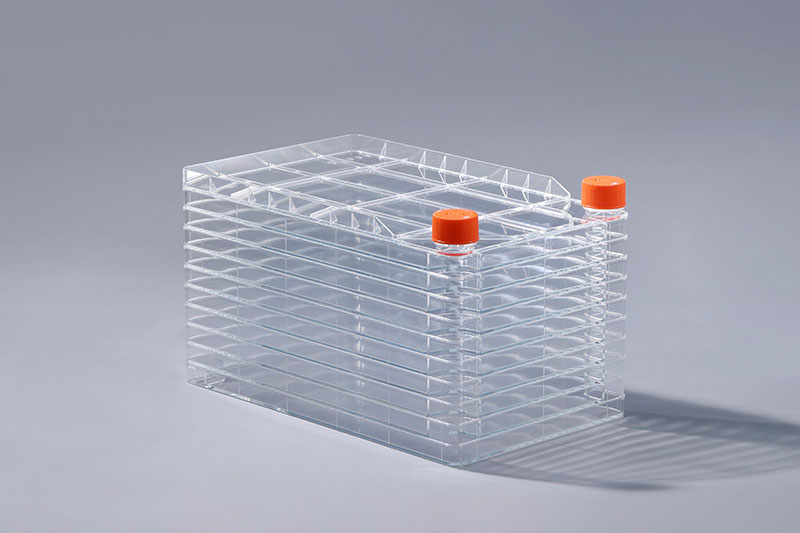Different applications from the specifications of the cell factory
With the continuous improvement and perfection of various processing techniques, cell culture consumables of various polymer materials are playing an increasingly important role in the field of life science research. A cell factory is a consumable made of polymer materials. According to its specifications, the application scenarios are also different.
The cell factory is made of polystyrene (PS) raw materials. At present, the specifications on the market include 1 layer, 2 layers, 5 layers, 10 layers, and 40 layers. The products below 10 layers are mainly used for small laboratory cells. It is often used to replace cell culture flasks, which can save space, reduce pollution, and facilitate operation.
Cell factories with more than 10 layers are generally used for large-scale cell culture, such as biopharmaceuticals, vaccine production and other fields, especially the industrial production of vaccines. Currently known vaccines that can be produced with this consumable include Japanese encephalitis vaccine, rubella vaccine, measles vaccine, mumps vaccine, chickenpox vaccine, hepatitis A vaccine, rabies vaccine, polio vaccine, rota vaccine, etc. It is worth noting that since the 10-layer and 40-layer consumables are heavy and difficult to operate manually, auxiliary tools such as manipulators, shakers, incubators, supports and carts are used to ensure the convenience of production. sex and safety.
The above are the application scenarios corresponding to different specifications of the cell factory. No matter which aspect is applied, the required temperature, osmotic pressure, carbon dioxide, pH value and sterility requirements for cell culture are unchanged, which are also the basic conditions for cell growth.

评论
发表评论